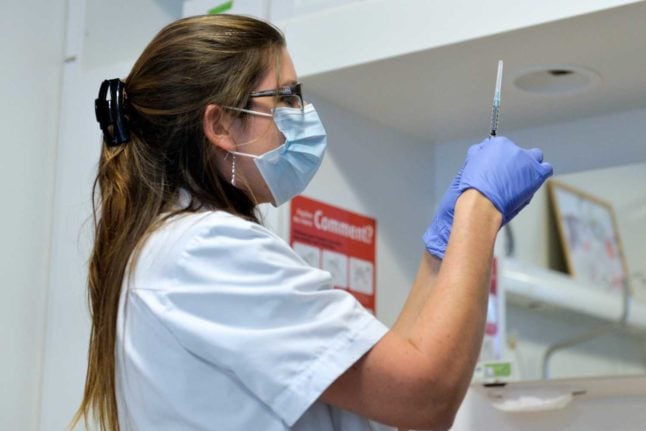Three percent
However, this number should go up to 8 percent by the end of February, and gradually increase after that, said Nora Kronig, vice-director of the Federal Office of Public Health (FOPH).
About 290,000 doses still remain in Switzerland and more are expected to be delivered soon, Kronig said.
The number of vaccines distributed to each canton is based on the number of residents, so it is not surprising that Zurich, the most populous canton, got the highest number of doses — 65,675.
Next are Vaud (40,00) and Bern (39,250).
In all, the government purchased 13 million doses of Covid vaccine from three manufacturers — Pfizer (3 million doses), Moderna (4.5 million) and AstraZeneca (5.3 million).
So far, only the Pfizer and Moderna vaccines have been approved for use in Switzerland.
READ MORE: EXPLAINED: Five questions about Covid-19 vaccines in Switzerland
42 adverse reactions
Out of approximately 170,000 vaccines administered in the Swiss cantons to date, only 42 reports of side effects were recorded, according to the country’s drug authorisation agency, Swissmedic.
Of the 42 cases, 26 were not serious, involving mild reactions, Swissmedic reported.
The others were classified as serious and five had “a fatal outcome”.
The agency added that the five patients who passed away “were aged between 84 and 92 and, according to the latest available information, died of illnesses that commonly occur at this age. Despite a chronological correlation with the vaccination, there is no concrete evidence to suggest that the vaccination was the cause of death”.
“So far this analysis has not resulted in any change in the positive benefit/risk ratio of the vaccines”.
The Federal Office of Public Health (FOPH) defined “serious damage” as the one “leading to significant health or economic effects for the vaccinated person. Temporary or lasting incapacity for work, for example, constitutes serious damage”.
On the other hand, minor side effects like redness or swelling caused by injection, headache, muscle pain, or slight fever, all of which are normal temporary reactions to any vaccine, are not considered to be severe.
End of June?
There are several reasons why this is the case.
First, because some cantons have used up their supply of vaccines and are waiting for the delivery of more doses.
Two doses are reserved for each person. Once a patient gets the first dose, they immediately get an appointment for the second one about a month later, and that dose is saved for them.
READ MORE: Covid-19: Why Switzerland has to portion out its vaccine vials
The second reason why the process is slow is because the vaccination is done by priority groups.
Right now, only people over 75 or those suffering from serious chronic conditions are getting the shots.
Risk factors — and therefore eligibility for the shot — are determined through an online questionnaire. Some cantons require a doctor’s note to confirm that a patient is in the high-risk group qualifying for the early vaccine. Other cantons rely on an honor system.
But health officials said that everyone who wants to be vaccinated will get the shots by the end of June.



 Please whitelist us to continue reading.
Please whitelist us to continue reading.
Member comments